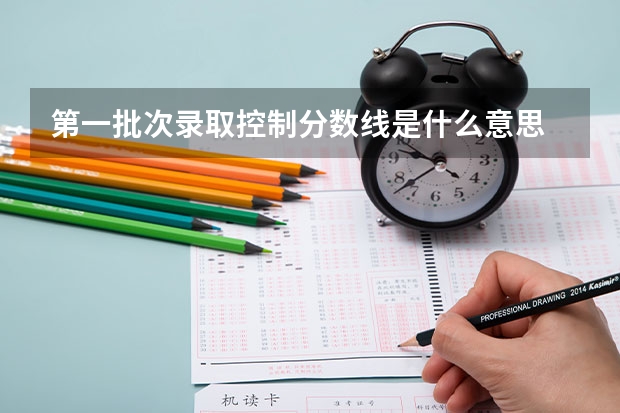腾远高考2024高中语法 高考英语语法:高中英语语法-高中英语语法讲义3
2024-02-16 05:20:39 | 三涯网
本文目录一览:

高考英语13个语法考点 高中英语重点语法知识归纳
很多高中生不知道英语语法方面有哪些重点知识,高考英语经常出现的语法考点有哪些呢?下面我为大家介绍一下! 三涯网
高考容易出现的13个语法知识总结
1. 考查never置于句首时的倒装
当否定副词never置于句首时,其后习惯上要用倒装语序(与一般疑问句形式相同)。如:(答案分别为BA)
(1) Never in my wildest dreams _________ these people are living in such poor conditions. (安徽卷)
A. I could imagine B. could I imagine
C. I couldn’t imagine D. couldn’t I imagine
(2) Never before _________ in greater need of modern public transport than it is today. (上海卷)
A. has this city been B. this city has been
C. was this city D. this city was
2. 考查little置于句首时的倒装
当否定副词little置于句首时,其后习惯上要用倒装语序(与一般疑问句形式相同)。如:(答案分别为DD)
(1) Little _________ that we were watching his every move, so he seemed to be going his own way in this business. (安徽卷)
A. he realized B. he didn’t realize
C. didn’t he realize D. did he realize
(2) They have a good knowledge of English but little _________ they know about German (天津卷)
A. have B. did C. had D. do
3. 考查seldom置于句首时的倒装
当否定副词seldom置于句首时,其后习惯上要用倒装语序(与一般疑问句形式相同)。如:(答案分别为BA)
(1) Seldom _________ any apology when mistakes are made.
A. we receive B. do we receive
C. we received D. did we receive
(2) Seldom _________ an article that was so full of lies.
A. have I read B. I have read C. had I read D. I had read.
4. 考查hardly / scarcely置于句首时的倒装
当否定副词hardly, scarcely等置于句首时,其后习惯上要用倒装语序(与一般疑问句形式相同) 。如:(答案为A)
Hardly _________ Edinburgh than they were ordered to return to London.
A. had they reached B. they had reached
C. have the reached D. they have reached
5. 考查no sooner等置于句首时的倒装
当no sooner, no longer等结构置于句首时,其后习惯上要用倒装语序(与一般疑问句形式相同) 。如:(答案分别为AC)
(1) —Did Linda see the traffic accident?
—No, no sooner _________ than it happened. (天津卷)
A. had she gone B. she had gone
C. has she gone D. she has gone
(2) No sooner _________ mowing the lawn than it started raining.
A. have I started B. I have started
C. had I started D. I had started
6. 考查nowhere置于句首时的倒装
当否定副词nowhere置于句首时,其后习惯上要用倒装语序(与一般疑问句形式相同)。如:(答案为A)
Maybe you have been to many countries, but nowhere else _________such a beautiful place. (辽宁卷)
A. can you find B. you could find
C. you can find D. could you find
7. 考查by no means等置于句首时的倒装
当表示否定意义的副词性短语by no mearns, on no accounts, in no case, at no time等置于 句首时,其后习惯上要用倒装语序(与一般疑问句形式相同)。如:(答案为D)
I’ve tried very hard to improve my English. But by no means _________ with my progress. (重庆卷)
A. the teacher is not satisfied B. is the teacher not satisfied
C. the teacher is satisfied D. is the teacher satisfied
8. 考查not only置于句首时的倒装
当not only…but also句式的not only部分置于句首时,其后习惯上要用倒装语序(与一 般疑问句形式相同)。如:(答案为B)
_________ snacks and drinks but they also brought cards for entertainment when they had a picnic in the forest. (上海)
A. Not only they brought B. Not only did they bring
C. Not only brought they D. Not only they did bring
9. 考查not until置于句首时的倒装
当not…until句式转换成not until且置于句首时,其后的主句部分习惯上要用倒装语序( 与一般疑问句形式相同)。如:(答案为B)
Not until I began to work _________ how much time I had wasted.
A. didn't I realize B. did I realize
C. I didn't realize D. I realized
10. 考查“only+状语”置于句首时的倒装
当“only+状语”置于句首时,其后习惯上要用倒装语序(与一般疑问句形式相同)。 如:(答案为DA)
(1) Only then _________ how much damage had been caused. (陕西卷)
A. she realized B. she had realized
C. had she realized D. did she realize
(2) _________ by keeping down costs will Power Data hold its advantage over other companies. (浙江卷)
A. Only B. Just C. Still D. Yet
11. 考查“so+形容词”置于句首时的倒装
当so…that句式的“so+形容词”部分置于句首时,其后习惯上要用倒装语序( 与一般疑问句形式相同)。如:(答案为BB)
(1) _________ that Maric was able to set up new branches elsewhere. (陕西卷)
A. So successful her business was B. So successful was her business
C. So her business was successful D. So was her successful business
(2) So difficult _________ it to work out the problem that I decided to ask Tom for advice. (广东卷)
A. I did find B. did I find C. I have found D. have I found
12. 考查类似“so do I”结构的倒装
So do I这类结构表示的是前面提出的某一肯定的情况,后者也同样适用,通常可译为 “……也一样”“……也是如此”。如:(答案为CA)
(1) — My room gets very cold at night.
— _________. (江苏卷)
A. So is mine B. So mine is C. So does mine D. So mine does
(2) —It’s burning hot today, isn’t it?
—Yes. _________ yesterday. (福建卷)
A. So was it B. So it was C. So it is D. So is it
13. 考查类似“nor / neither do I”结构的倒装
nor [neither] do I这类结构表示的是前面提出的某一否定的情况,后者也同样适用,通常可译为“……也一样”“……也是如此”。如:(答案为B)
If Joe’s wife won’t go to the party, _________. (全国II)
A. he will either B. neither will he
C. he neither will D. either he will
高考英语语法重点归纳总结
一、名词和冠词
考点有名词的可数与不可数,名词的格,名词作定语,冠词的考点是,定冠词与不定冠词,零冠词。
二:代词和it的用法
一般常考的是other,another,the other,others的区别,both,either,neither,all,every,each,none的区别,还有something,anything,everything的用法(这个比较简单)这一块最难的应该是it,that,one作代词时的区别了。
三、介词和连词
一般考动词的固定搭配,in,at,for,to,of,on,with,about,from,into,after···常用介词.连词最常考得应该是“除此之外”了,expect,expect for,besides,还有表原因的连词;as,for,since,because的区别。
四、形容词和副词
这一块比较简单最常考的就是比较级了,其次是以ly结尾但不是副词的词了,比如说friendly是形容词,形容词的排序问题在今年的高考中也出现了,不过这个是基础但不是重点。
五、动词和动词短语
这个考点是重点,在完形填空及改错和单选中是必考的,这个只能靠你自己的积累,课本中的动词短语是重点,必须记下来。
六、情态动词和虚拟语气,常见的情态动词就够应付考试了,虚拟语气是高中语法的难点但不是重点。
七、动词的时态和语态(就是主动句和被动句)时态有一般现在时,一般过去时,现在进行时,过去进行时,一般将来时,现在进行表将来,一般现在表将来,过去将来时(一般不考),现在完成时,过去完成时,现在完成进行时(现在很常考)。
八、非谓语动词
动名词作主语,不定式作主语,动名词作宾语,不定式作宾语,动名词作定语,不定式做定语,这一块也比较简单九:数词和主谓一致,数词的考点;基数词,序数词,分数,百分数,(这一块既不是难点也不是重点),主谓一致在以前比较重要,现在地位有所下降。

高考英语语法:高中英语语法-句子成分
《高中英语语法-句子成分》由英语我整理,更多请访问: 。本内容整理时间为05月12日,如有任何问题请联系我们。句子成分
一、句子成分
(一)句子成分的定义:构成句子的各个部分叫做句子成分。句子成分有主要成分和次要成分;主要成分有主语和谓语;次要成分有表语、宾语、定语、状语、补足语和同位语。
(二)主语:主语是一个句子所叙述的主体,一般位于句首。但在there be结构、疑问句(当主语不疑问词时)和倒装句中,主语位于谓语、助动词或情态动词后面。主语可由名词、代词、数词、不定式、动名词、名词化的形容词和主语从句等表示。例如:
During the 1990s, American country music has become more and more popular.(名词)
We often speak English in class.(代词)
One-third of the students in this class are girls.(数词)
To swim in the river is a great pleasure.(不定式)
Smoking does harm to the health.(动名词)
The rich should help the poor.(名词化的形容词)
When we are going to have an English test has not been decided.(主语从句)
It is necessary to master a foreign language.(it作形式主语,真正的主语为后面的不定式)
(三)谓语:谓语说明主语所做的动作或具有的特征和状态。动词在句中作谓语,一般放在主语之后。谓语的构成如下:
1、简单谓语:由一个动词或动词短语构成。如:He practices running every morning.
2、复合谓语:(1)由情态动词或其他助动词加动词原形构成。如:You may keep the book for two weeks. He has caught a bad cold. (2)由系动词加表语构成。如:We are students.
(四)表语:表语用以说明主语的身份、特征和状态,它一般位于系动词(如be, become, get, look, grow, turn, seem等)之后。表语一般由名词、代词、形容词、分词、数词、不定式、动名词、介词短语、副词及表语从句表示。例如:
Our teacher of English is an American.(名词)
Is it yours?(代词)
The weather has turned cold.(形容词)
The speech is exciting.(分词)
Three times seven is twenty one?(数词)
His job is to teach English.(不定式)
His hobby(爱好)is playing football.(动名词)
The machine must be out of order.(介词短语)
Time is up. The class is over.(副词)
The truth is that he has never been abroad.(表语从句)
(五)宾语:宾语表示动作的对象或承爱者,一般位于及物动词和介词后面。例如:
They went to see an exhibition(展览)yesterday.(名词)
The heavy rain prevented me form coming to school on time.(代词)
How many dictionaries do you have? I have five.(数词)
They helped the old with their housework yesterday.(名词化形容词)
He pretended not to see me.(不定式短语)
I enjoy listening to popular music.(动名词短语)
I think(that)he is fit for his office.(宾语从句)
宾语种类:(1)双宾语(间接宾语+直接宾语),例如:Lend me your dictionary, please.(2)复合宾语(宾语+宾补),例如:They elected him their monitor.
(六)宾语补足语:英语中有些及物动词,除有一个直接宾语以外,还要有一个宾语补语,才能使句子的意义完整。带有宾语补足语的一般句型为:某些及物动词(如make等+宾语+宾补)。宾补可由名词、形容词、副词、不定式、分词、介词短语和从句充当。例如:
His father named him Dongming.(名词)
They painted their boat white.(形容词)
Let the fresh air in.(副词)
You mustn't force him to lend his money to you.(不定式短语)
We saw her entering the room.(现在分词)
We found everything in the lab in good order.(介词短语)
We will soon make our city what your city is now.(从句)
(七)定语:修饰名词或代词的词、短语或从句称为定语。定语可由以下等成分表示:
Guilin is a beautiful city.(形容词)
China is a developing country; America is a developed country.(分词)
There are thirty women teachers is our school.(名词)
His rapid progress in English made us surprised.(代词)
Our monitor is always the first to enter the classroom.(不定式短语)
The teaching plan for next term has been worked out.(动名词)
He is reading an article about how to learn English.(介词短语)
(八)状语:修饰动词、形容词、副词或整个句子,说明动作或状态特征的句子成分,叫做状语。可由以下形式表示:
Light travels most quickly.(副词及副词性词组)
He has lived in the city for ten years.(介词短语)
He is proud to have passed the national college entrance examination.(不定式短语)
He is in the room making a model plane.(分词短语)
Wait a minute.(名词)
Once you begin, you must continue.(状语从句)
状语种类如下:
How about meeting again at six?(时间状语)
Last night she didn't go to the dance party because of the rain.(原因状语)
I shall go there if it doesn't rain.(条件状语)
Mr Smith lives on the third floor.(地点状语)
She put the eggs into the basket with great care.(方式状语)
She came in with a dictionary in her hand.(伴随状语)
In order to catch up with the others, I must work harder.(目的状语)
He was so tired that he fell asleep immediately.(结果状语)
She works very hard though she is old.(让步状语)
I am taller than he is.(比较状语)
练习一
一、指出下列句子划线部分是什么句子成分:
1. The students got on the school bus.
2. He handed me the newspaper.
3. I shall answer your question after class.
4. What a beautiful Chinese painting!
5. They went hunting together early in the morning.
6. His job is to train swimmers.
7. He took many photos of the palaces in Beijing.
8. There is going to be an American film tonight.
9. He is to leave for Shanghai tomorrow.
10. His wish is to become a scientist.
11. He managed to finish the work in time.
12. Tom came to ask me for advice.
13. He found it important to master English.
14. Do you have anything else to say?
15. To be honest; your pronunciation is not so good.
16. Would you please tell me your address?
17. He sat there, reading a newspaper.
18. It is our duty to keep our classroom clean and tidy.
19. He noticed a man enter the room.
20. The apples tasted sweet.
二、用符号划出下列短文各句中的主语(-)、谓语(=)、宾语(~):
I hope you are very well. I'm fine, but tired. Right now it is the summer vacation and I'm helping my Dad on the farm. August is the hottest month here. It is the time of year for the rice harvest, so every day I work from dawn until dark. Sometimes we go on working after dark by the lights of our tractors. We grow rice in the south of the States, but in the north where it is colder they grow wheat. We have a lot of machines on the farm. Although the farm is large, my Dad has only two men working for him. But he employs more men for the harvest. My brother takes care of the vegetable garden. It doesn't often rain in the summer here. As a result, we have to water the vegetable garden. Every evening we pump water from a well. It then runs along channels to different parts of the garden.
三、用符号划出下列短文各句中的定语(-)、状语(=)、补语(~):
Most Saturday evenings there is a party, even at harvest time. These parties often make us very happy. We cook meat on an open fire outside. It's great! Americans eat a lot of meat - too much in my opinion. Some of my friends drink beer. I don't, because I have to drive home after the party. In your letter you asked about the time in different areas of the States. There are five different time areas in the States. In my state we are fourteen hours behind Beijing time. How many different time areas do you have in China? Well, I must stop and get some sleep. Please give my best regards to your parents.
四、选择填空:
( )1. ____ will leave for Beijing.
A. Now there the man B. The man here now
C. The man who is here now D. The man is here now
( ) 2. The weather ____.
A. wet and cold B. is wet and cold C. not wet and cold D. were wet and cold
( ) 3. The apple tasted ____.
A. sweets B. sweetly C. nicely D. sweet
( ) 4. He got up ____ yesterday morning.
A. lately B. late C. latest D. latter
( )5. The actor ______at the age of 70.
A. dead B. died C. dyed D. deaded
( )6. ____ were all very tired, but none of ____ would stop to take a rest.
A. We, us B. Us, we C. We, our D. We, we
( )7. He found the street much ______.
A. crowd B. crowding C. crowded D. crowdedly
( ) 8.I think _____necessary to learn English well.
A. its B. it C. that D. that is
( ) 9. The dog ____ mad.
A. looks B. is looked C. is being looked D. was looked
( )10.I will never forget the day ______ I joined the army.
A. that B. when C. in which D. where 《高中英语语法-句子成分》由英语我整理,更多请访问:

高考英语语法:高中英语语法-高中英语语法讲义3
三涯网(https://www.sanyazx.com)小编还为大家带来高考英语语法:高中英语语法-高中英语语法讲义3的相关内容。
《高中英语语法-高中英语语法讲义3》由出国留学我精心为您学习英语准备.liuxue86.com。本内容整理时间为05月12日,如有任何问题请联系我们。高中英语语法讲义3
三、一致关系
一)主谓一致
1. 主谓一致(与插入语无关)
1主谓的分隔原则:主谓之间可以用定语从句或者省略的定语从句分隔。
2定语从句中的主谓一致:
3随前一致:
n. + together with n2
as well as
including
along with
with / of
accompanied with / by
4就近原则:n1 or n2 +v(就近原则)
either n1 or n2
5可数n1 and 可数n2+v(pl)
不可数n1 and 不可数n2+v(pl)
例外:war and peace is… war and peace是一个整体
但是如果主语表示的是同一个概念,同一人,同一事的时候,谓语动词用单数,这种结构的特征是and连接的两个词只有一个冠词。
The iron and steel industry is very important to our country.
The head master and mathematical teacher is coming.
The head master and the mathematical teacher are coming.
类似的还有:law and order bread and
butter black and white
To love and to be loved is …
A lawyer and a teacher are…
A lawyer and teacher is …
6随后原则:not A but B / not only A but also B+v.(与B一致)
7百分比结构:most , half , rest , some , majority , one+persent
of+n1+v.(由n1决定)
8倒装结构的主谓一致:
a)There be +n 由名词决定动词
b)Among , between等介词位于句首引起倒装结构:
Among / Between …+系动词+n. (由名词决定动词)
9The+adj的主谓一致:
a)当表示"一类人",
b)当表示某一抽象概念时
The good is always attractive.
10 To do/doing/主从+vs
*More than one+n
many a +n.
a day or two
二)、倒装
1 全部倒装
是只将句子中的谓语动词全部置于主语之前。此结构通常只用与一般现在时和一般过去时。常见的结构有:Up went the plane = the plane went up.
1) here, there, now, then, thus等副词置于句首, 谓语动词常用be, come, go, lie, run。
2) 表示运动方向的副词(back, down, off, up)或地点状语置于句首,谓语表示运动的动词。
注意:1) 上述全部倒装的句型结构的主语必须是名词,如果主语是人称代词则不能倒装。Here he comes. Away they went. 2) 谓语动词是be的时候,不能倒装。 Here it is. Here you are.
3) 形容词短语/分词短语位于句首,引起倒装
*typical of characteristic of
*coinciding with + n
4) 表示地点范围的介词短语位于句首,谓语动词为系动词,一定引起倒装
In…(表语)+系动词+主,主同。
*在倒装句型答案中不能出现there
*常考介词要倒装:among between in at beneath
常考的系动词:be lie exist remain rest
部分倒装
1. 否定 adv 位于句首,引起倒装:not only, not until, hardly, scarcely,
seldom, rarely, no sooner…than
1) not until + 时间 + 主谓倒装,not until + 句子+主谓倒装
2) only+状语位于句首
only +ad. eg: recently
prep.短短语 eg: in recently years
从句 eg: when clause
only一个词本身不倒装
3) 在比较级结构中,than后面可以倒装,也可以不倒装。
部分倒装是指将谓语的一部分如助动词或情态倒装至主语之前。如果句中的谓语没有助动词或情态动词,则需添加助动词do, does或did,并将其置于主语之前。
? 1) Neither, nor, so 表示前面句子的共同否定或者肯定,产生倒装,一般主动词提前,谓语动词的其他部分就
4) as / though引导的让步从句必须将表语或状语提前 (形容词, 副词, 分词, 实义动词提前)。
as〔让步〕虽然,尽管〔词序倒装。语气比 though 强〕。
Successful as he is, he is not proud. 他虽成功,却不骄傲。
Women as she is, she's every brave.
Try hard as he will, he never seems able to do the work satisfactorily.
注意:A) 句首名词不能带任何冠词。B) 句首是实义动词, 其他助动词放在主语后。如果实义动词有宾语和状语, 随实义动词一起放在主语之前。
5) 其他部分倒装
a) so… that 句型中的so; such… that句型中的such位于句首时,需倒装。
So frightened was he that he did not dare to move an inch.
b) 在某些表示祝愿的句型中:May you all be happy.
c) 在虚拟语气条件句中从句谓语动词有were, had, should等词,可将if 省略,把 were, had, should 移到主语之前,采取部分倒装。Were I you, I would try it again.
四、复合句
从句可分为:
? 名词性从句' 主语从句、宾语从句、表语从句、同位语从句
? 形容词性从句'定语从句
? 副词性从句'状语从句
" 常考的关系代词:that; which; who/whom/whose; where; when; what; as。
" 常见的同位语从句现行词(that之前的抽象名词):fact, idea, news, hope, conclusion, evidence, opinion, problem, thought, understanding…
" 常用的引导词
o 时间状语从句:while; when; before; whenever; as; after; till; until; since; once; ever since; as/so long as; as soon as; no sooner… than; hardly… when; scarcely/barely… when; the moment/minute/instant; on (the point of) doing…
o 地点状语从句:where; wherever
o 原因状语从句:because; since; as; seeing that; considering that; now that; in that; for fear that; lest; owing to the fact that; because of the fact that; due to the fact that…
o 方式状语从句:as; as if; as though; how; save that…
o 比较状语从句:as; than; as… as; not so… as; hardly… than;
o 结果状语从句:so that; so… that; such… that; so as to…
o 条件状语从句:if; unless; in case; so long as; so far as; provided/providing/that; supposing; granted/granting that…; giving that….
o 让步状语从句:though; although; even if; even though; whether; as; however; no matter (what, how, when); for all that; in spite of the fact that; granted that; regardless of the fact that…
o 目的状语从句:that; so that; in order that; lest; for the fear that; in case…
定语从句:
which 引导的定语从句结构
1)which是关系代词,which后面应该加缺主语或者宾语的句子,
在这个句子中,which要作成分,作主语或者宾语
2)in which+完整的句子
which在定语从句中作in的宾语,所以不能作后面句子的主语
3)名词+of which+谓语动词
of which来修饰名词,名词在定语从句中作主语,所以后面直接跟谓语动词
I have five books three of which are borrowed from Mary.
4)介词+ which +to do 其功能相当于定语从句。
The key with which to open the door is lost.
5)定语从句的省略结构:
1. 如果that / which在定从中作 宾语,可以省略.
sub+vt+n+(which / that)+sub+vt
→s+vt+n+s+v
s+vt+n1+n2+vt
*当做题时,若发现两个名词在一起,但是似乎连不上,则一定省略that /
which,则动词为vt,做谓语。
6)定从的特殊省略
the way (in which) + 句子
the reason (why that)+句子 均为完整句
the time (that / when)+句子
I do remember the first time (that省) I ever heard the sweetest voice in the world.
By the time省that+句子,句子。
7)定从的主系省略(主+系可同时省)
即:which be , who be , that be可同时省
状语从句省略结构
这种省略从句主语的方式理论上需要满足以下两个条件:
第一、特定的状语从句引导词:although though even though when while if as
第二、从句主语和主句主语必须保持一致;
第三、从句的谓语必须是be动词,主语和be动词同进同出,
比如上面的they和are要么同时省略,要么同时保留。 《高中英语语法-高中英语语法讲义3》由出国留学我精心为您学习英语准备.liuxue86.com 以上就是三涯网小编整理的内容,想要了解更多相关资讯内容敬请关注三涯网。更多相关文章关注三涯网:www.sanyazx.com
免责声明:文章内容来自网络,如有侵权请及时联系删除。

2022地理高考答题万能模板常见考点解答方法地理选择题一定要看清楚题目的要求,比如选择正确选项还是错误选项等。另外,地理考试答题是有答题模板的,大家记住这些答题模板,在考试的时候可以获得更高的分数。下面是小编整理的万能模板,供大家查阅。地理高考答题万能模板一、工业综合整治措施:1.调整工业布局,发展新兴工业及第三产业,改造传统产业,保证各业平衡发展,促进经济结构多样化2.因地制宜,合理、综合开

2022高考数学考前必背知识点高频必考考点高考数学科目想要取得高分,对于基础知识的掌控一定要熟练,并且能够运用到解题中。小编整理了2022高考数学考前必背知识点,供各位考生朋友查阅,赶快来看吧!2022高考数学考前必背知识点一、三角函数题三角题一般在解答题的前两道题的位置上,主要考查三角恒等变换、三角函数的图像与性质、解三角形等有关内容.三角函数、平面向量和三角形中的正、余弦定理相互交汇,是高

高中政治会考基础知识会考必背考点我国社会主义民主政治的特点和优势:1、国家的一切权力属于人民;2、党的领导、人民当家作主、依法治国的有机统一;3、民族内容和形式的统一。高中政治知识点合集(一)人民代表大会1、(1)我国的国家制度包括国体和政体(2)我国的根本政治制度是人民代表大会制度(3)我国基本政治制度:中国共产党领导的多党合作和政治协商制度、民族区域自治制度。2、人民代表大会的地位、性质和

2014年高考历史考点预测高考考点(或考查内容)古代中国1、古代中国的政治制度(1)商周时期的政治制度(2)秦中央集权制度的形成(3)汉到元政治制度的演变(4)明清君主专制制度的加强2、古代中国的经济(1)农业的主要耕作方式和土地制度(3)商业的发展(4)资本主义萌芽与“重农抑商”和“海禁”政策。3、中国传统文化主流思想的演变(3)宋明理学4、古代中国的科学技术与文学艺术(3)文学成就古代希腊

2022年高考历史考点历史必背知识点归纳历史科目知识点广泛,考生需要记忆的内容较多,为帮助大家节约时间,小编汇总了明清时期的高考历史考点,大家赶快来看吧!2022年高考历史考点一、政治:明清君主专制的强化1.明朝强化专制皇权(1)废除丞相:明太祖裁撤中书省,废丞相,亲掌六部直接管理国家政事,标志着专制皇权发展到新高度,丞相制度从此被废除。(2)设立内阁:明太祖设立殿阁大学士,但不参与决策。明成

高三物理必背知识点重要考点有哪些物理是比较难的一个科目,很多同学对于物理科目都感到头疼,其实只要大家多记忆知识点,认真听讲,及时复习,还是可以提高成绩的。下面是小编为大家整理的物理知识点汇总,一起来看吧!高三物理必背知识点1.简谐振动F=-kx{F:回复力,k:比例系数,x:位移,负号表示F的方向与x始终反向}。2.单摆周期T=2π(l/g)1/2{l:摆长(m),g:当地重力加速度值,成立条

2022高考化学冲刺复习重点有哪些必背考点在高考化学复习时一定要知识自己的薄弱处在哪里,不要将所有知识点都列入复习的重点,这样的复习是抓不住复习重点的,找到自己的薄弱环节,将复习的时间都用在自己的不足之处。下面是2022高考化学冲刺复习重点知识点,大家快来温习吧!2022高考化学冲刺复习重点一、高中化学实验操作中的七原则掌握下列七个有关操作顺序的原则,就可以正确解答"实验程序判断题&

2024年考研英语一难度系数 2024年考研英语一难度系数分析如下: 2024年考研英语一的难度系数预计会在0.47-0.53之间。这个预测基于过去几年的平均分和难度系数趋势,但实际情况可能会有所不同。 考研英语一的难度历年来一直较高,主要是因为其考察的内容和难度水平与大学英语六级相当,甚至更高一些。在考研英语一中,考生需要掌握的词汇量较大,同时还需要具备较高的阅读、翻译和写作能
-
 成毅高考成绩是多少?
成毅高考成绩是多少?2024-07-07 03:45:22
-
 第一批次录取控制分数线是什么意思 2023年湖南三本投档分数线(理科)
第一批次录取控制分数线是什么意思 2023年湖南三本投档分数线(理科)2023-04-03 01:51:47
-
 2023年江苏财经类大学名单及录取分数线排名 2023年陕西士官学校录取分数线
2023年江苏财经类大学名单及录取分数线排名 2023年陕西士官学校录取分数线2023-04-14 18:09:11
-
 2024河南高考志愿填报规则 河南省高考志愿是平行志愿还是顺序志愿
2024河南高考志愿填报规则 河南省高考志愿是平行志愿还是顺序志愿2024-01-16 02:00:30
-
 哈三中每年考清华北大多少人
哈三中每年考清华北大多少人2024-06-17 05:32:18
-
 安徽科技学院专业和录取分数线介绍(2024分数线预测)
安徽科技学院专业和录取分数线介绍(2024分数线预测)2024-01-23 07:27:23